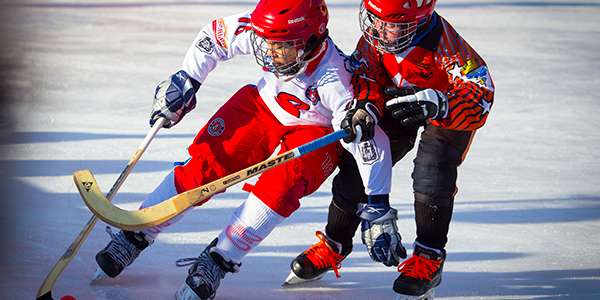
Your Child’s Mental Game
Being a sports parent is hard work and can be frustrating at times, especially if your child is under-performing during competition. How do you know if your child is under-performing in competition because he or she lacks physical skills, has low motivation or desire, poor coaching or lacks mental toughness?
Here are some ways that you can determine if your child lacks mental toughness.
Differs in performance from practice to competition.
Some athletes are more comfortable in practice than when they play in games. Kids feel more pressure in competition and worry more about making mistakes. For example, in practice, these athletes can make three-point shots with ease, but during a game, they can’t make three-point shots. This is an indication your child has changed mentally or emotionally from practice to competition.
Has lowered self-confidence in competition.
Your young athletes’ self-confidence is critical to their success. They rely on self-confidence as their foundation when things are not going as planned.
Your athletes might have low self-confidence during a game when they say things like: “I suck” “I can’t” “Why should I even try?” You may not observe these behaviors during the game (unless your kids verbalize those feelings during the game). However, you can observe low-self confidence through your athlete’s body posture and facial expressions.
Your sport kids my hang their heads down or show slumped posture or pouting, for example. If the doubts and worry start to creep in particularly during competition, this indicates that your child has low-self confidence.
Shows pre-game anxiety.
Although young athletes might be nervous about performing in competition, many professional athletes also experience pre-game jitters. If your sports kids do experience pre-game jitters, to a degree this is normal and it shows that they care and are excited about their performance.
But when kids’ pregame jitters turn into anxiety, they can under-perform. Most kids will experience butterflies in their stomach, sweaty palms, or racing heart beat before a game. These feelings are indeed normal and are ways that the body prepares itself. However, if these feelings become too intense, they can interfere with your child’s play.
Sometimes it can be difficult to determine whether your kids are anxious or excited to play. If your sports kids appear tight and do not “go for it,” they may be too tense to play freely. For example, well into the second set, a tennis player may still be hitting safe shots down the middle rather than going for angles and winners. “Playing it safe” during the middle or end of the game is a good indicator that your child is still too tense to play well.
Lacks focus.
During competition, it’s not possible to focus every minute of the game, but sometimes athletes will lose focus more often in games than in practice. You might observe this when your child is focused more on watching you or friends rather than what is going on during the game.
Distractions are a natural part of competition.
However, if your kids have trouble re-gaining focus, they lack mental toughness. How can you tell if your athletes have trouble re-focusing? One way is to watch your kids’ eye contact. If your sports kids lack focus, their eye contact becomes scattered.
Also, watch for an increase in mental game mistakes. When do they occur? For example, a volleyball player swings and misses on a kill. This could be a sign of a lack of focus. Sport is just as much a mental challenge as it is physical. Help your kids improve their mental toughness by identifying the top mental game challenges. By becoming better at identifying these mental challenges, you are on the right path to helping your kids better manage their thoughts and emotions on the field.
For a more complete list of mental game challenges, see Parents’ Checklist for Identify Mental Game Challenges.
Related Sports Psychology Articles
- How Toxic Sports Cultures Hurt Kids’ Mental Health
- The Link Between Sports Kids’ Mental Game and Mental Health
- How to Explain Mental Training to Teens
*Subscribe to The Ultimate Sports Parent Podcast
*Subscribe to Peak Performance Sports on Youtube
Download a free sports psychology report to improve your mental game!
Sports Psychology Coaching for Young Athletes

One-on-one mental performance coaching is the fastest and most effective method to improve your athletes’ mental game, boost their performance, and make lasting changes. And as a bonus, parents learn what to say to help young athletes feel confident and thrive in sports. Please call us at 888-742-7225 with your questions.
